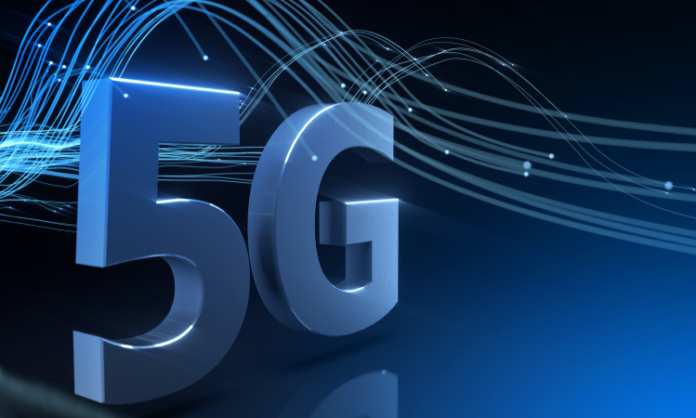
Table of Contents
5G Technology refers to the fifth generation of mobile telecommunications technology that is designed to provide faster, more reliable, and more efficient wireless communication. It is the latest advancement in mobile networks and is expected to revolutionize the way we connect and communicate. With the increasing demand for high-speed internet, the need for 5G technology has become imperative.
The significance of 5G tech lies in its ability to offer faster speeds, improved connectivity, and lower latency. It has the potential to revolutionize various industries, including mobile communication, the Internet of Things (IoT), autonomous vehicles, virtual reality and augmented reality, and more.
In this article, we will delve into the benefits, applications, challenges, and limitations of 5G tech, and its impact on society and the economy. The thesis statement of this article is: “5G Tech is revolutionizing the way we connect and communicate by offering faster speeds, improved connectivity, and lower latency.”
Definition of 5G Technology :
5G Technology refers to the fifth generation of mobile telecommunications technology. It is a wireless communication standard that has been designed to provide faster, more reliable, and more efficient connectivity compared to previous generations of mobile networks. 5G technology operates in a higher frequency range and utilizes advanced techniques such as multiple-input multiple-output (MIMO) and beamforming to increase data transfer speeds and improve network coverage.
5G tech promises to deliver faster download and upload speeds, lower latency, and improved network capacity compared to previous generations of mobile networks. This technology is also designed to support a wide range of applications, including mobile communication, the Internet of Things (IoT), autonomous vehicles, virtual reality and augmented reality, and more. It has the potential to revolutionize the way we connect and communicate, and bring about new innovations in various industries.
Importance of 5G Technology in Today’s World :
The importance of 5G tech in today’s world can be summarized as follows:
-
Faster and More Reliable Connectivity:
5G technology offers faster download and upload speeds, lower latency, and improved network capacity compared to previous generations of mobile networks. This makes it possible for users to enjoy a faster and more reliable internet experience, with the ability to stream high-quality video, play online games, and use other data-intensive applications without any lag or interruption.
- Improved Mobile Communication:
5G technology has the potential to revolutionize mobile communication by providing faster and more efficient connectivity. This will make it possible for users to make calls, send messages, and use other mobile applications without any interruption or delay.
-
Support for the Internet of Things (IoT):
5G tech has been designed to support the Internet of Things (IoT) by providing faster, more reliable, and more efficient connectivity for IoT devices. This will enable the widespread adoption of IoT applications and devices, such as smart homes, wearables, and more.
-
Autonomous Vehicles:
5G will play a key role in the development of autonomous vehicles by providing the necessary connectivity for these vehicles to communicate with each other and with other infrastructure. This will help to make autonomous vehicles safer, more efficient, and more widely adopted.
-
Virtual Reality and Augmented Reality:
5G will support the growth of virtual reality and augmented reality applications by providing the necessary connectivity for these applications to function smoothly and without interruption. This will make it possible for users to experience immersive virtual environments and enhanced real-world experiences.
The importance of 5G lies in its ability to revolutionize the way we connect and communicate, and bring about new innovations in various industries. It has the potential to make our lives easier, more efficient, and more connected.
Benefits of 5G Technology :
The benefits of 5G technology can be summarized as follows:
- Faster Speeds:
One of the most notable benefits of 5G technology is its ability to deliver faster download and upload speeds compared to previous generations of mobile networks. This will allow users to stream high-quality video, play online games, and use other data-intensive applications without any lag or interruption.
-
Improved Connectivity:
5G technology promises to offer improved network coverage and capacity, making it possible for users to stay connected even in areas where previous generations of mobile networks had poor coverage. This will help to bridge the digital divide and make the internet more accessible to more people.
-
Lower Latency:
5G technology offers lower latency compared to previous generations of mobile networks. This means that data transfers will be faster and more responsive, making it possible for users to enjoy real-time communication and other applications without any delay.
-
Enhanced User Experience:
The faster speeds, improved connectivity, and lower latency offered by 5G technology will result in a greatly enhanced user experience. This will make it possible for users to enjoy seamless and uninterrupted access to the internet and all its benefits.
-
More Efficient Network Utilization:
5G tech utilizes advanced techniques such as multiple-input multiple-output (MIMO) and beamforming to increase data transfer speeds and improve network coverage. This will result in more efficient use of network resources and help to reduce network congestion.
-
New Business Opportunities:
5G technology will create new business opportunities in various industries, such as mobile communication, the Internet of Things (IoT), autonomous vehicles, virtual reality and augmented reality, and more. This will help to drive economic growth and create new jobs in these industries.
In conclusion, 5G technology offers a range of benefits that will revolutionize the way we connect and communicate. It has the potential to make our lives easier, more efficient, and more connected, and bring about new innovations in various industries.
-
Applications of 5G Technology
5G technology has a wide range of potential applications, some of which include:
-
Mobile Communication:
5G technology promises to revolutionize mobile communication by providing faster and more efficient connectivity. This will make it possible for users to make calls, send messages, and use other mobile applications without any interruption or delay.
-
Internet of Things (IoT):
5G technology has been designed to support the Internet of Things (IoT) by providing faster, more reliable, and more efficient connectivity for IoT devices. This will enable the widespread adoption of IoT applications and devices, such as smart homes, wearables, and more.
-
Autonomous Vehicles:
5G technology will play a key role in the development of autonomous vehicles by providing the necessary connectivity for these vehicles to communicate with each other and with other infrastructure. This will help to make autonomous vehicles safer, more efficient, and more widely adopted.
-
Virtual Reality and Augmented Reality:
5G technology will support the growth of virtual reality and augmented reality applications by providing the necessary connectivity for these applications to function smoothly and without interruption. This will make it possible for users to experience immersive virtual environments and enhanced real-world experiences.
-
Smart Cities:
5G technology will play a critical role in the development of smart cities by providing the necessary connectivity for smart city applications and devices, such as smart traffic lights, smart waste management, and more. This will help to make cities more efficient, sustainable, and livable.
-
Remote Healthcare:
5G technology will enable remote healthcare by providing the necessary connectivity for telemedicine and other remote healthcare applications. This will make it possible for patients to receive medical care from their homes, and for healthcare providers to offer more accessible and convenient services.
Industry 4.0:
5G technology will support the growth of Industry 4.0 and the adoption of Industry 4.0 technologies, such as artificial intelligence, robotics, and the Internet of Things (IoT). This will help to make manufacturing and other industries more efficient, sustainable, and competitive.
These are just a few examples of the many potential applications of 5G technology. As the technology continues to develop and mature, it is likely that new applications and innovations will emerge that will further transform the way we live and work.
Challenges and Limitations of 5G Technology :
Despite its many benefits, 5G technology also faces a number of challenges and limitations, some of which include:
-
Cost:
Deploying 5G networks and upgrading existing infrastructure to support 5G technology can be expensive. This may limit the adoption of 5G technology, especially in developing countries, where there may be limited financial resources for upgrading networks.
-
Limited Availability:
The widespread availability of 5G networks and services is currently limited, and it may take several years for 5G to be fully deployed and available to all users.
-
Interference with Other Technologies:
5G technology operates in high-frequency bands that can interfere with other technologies, such as Wi-Fi and Bluetooth. This may result in reduced performance and decreased reliability for these technologies.
-
Security Concerns:
The increased use of 5G networks and the proliferation of IoT devices connected to these networks may increase the risk of cyber attacks and other security threats. This will require increased investment in security measures and increased awareness among users to keep their devices and data secure.
-
Regulatory Challenges:
The deployment and regulation of 5G is a complex issue that involves a wide range of stakeholders, including governments, telecommunications companies, and other organizations. Ensuring the effective and efficient deployment of 5G technology will require a clear and consistent regulatory framework that addresses the needs of all stakeholders.
-
Health Concerns:
Some studies have raised concerns about the potential health effects of exposure to the high-frequency radio waves used by 5G technology. While many experts believe that the levels of exposure are safe, there is ongoing debate about the safety of 5G technology, and more research is needed to fully understand the potential health effects.
In conclusion, while 5G offers many benefits and exciting new possibilities, it also faces a number of challenges and limitations that must be addressed. Addressing these challenges will require continued innovation, investment, and collaboration between all stakeholders.
-
Conclusion :
5G technology represents a major leap forward in the way we connect and communicate. It offers faster, more efficient, and more reliable connectivity, and has the potential to transform a wide range of industries, from mobile communication and the Internet of Things to autonomous vehicles and remote healthcare.
However, the deployment and widespread adoption of 5G is not without its challenges and limitations. These include the cost of upgrading infrastructure, limited availability, potential interference with other technologies, security concerns, regulatory challenges, and health concerns.
Despite these challenges, the benefits of 5G technology are too significant to ignore, and it is clear that 5G technology has the potential to revolutionize the way we live and work. As the technology continues to evolve and mature, it is likely that new and innovative applications will emerge that will further enhance the capabilities and impact of 5G technology.
Related Post:
Background Of Technology : Present and Future
























